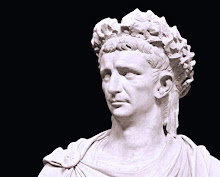This will be my last posting for this blog. Since the beginning of this blog right after the spring break, I have been thinking about the how we, as people in countries look at the world around us and how it differs. Despite living in America over a decade I cannot quite penetrate the into the worldview of Amricans, so I will move directly into the worldview of Koreans.
The modern Korean is both prideful and still bearing heavy injuries around us. Since the fall of the Chosun Dynasty in 1910, and even in the chaotic two decades before that, the world was a hostile place where the foreigners were indeed "barbarians" as it was noted in the Confucian Orthodoxy. The new foreigners did not want to accept Korea as it was, but was determined to force it to the it Imperialist Great Game, and eventually Korea endured grueling three-decade rule from Japan, where Japanese tried to obliterate the unique distinction of Korea from the Koreans. After that Korea was liberated not through its own might, but through the intervention of victorious allied powers in WWII. And then in five years, Korea was engulfed in horrific Civil-International war (for how else can the Korean war be described?) where we were amputated into two very different, but equally unsatisfying political system. For the Southern half, it took three decade of democratic agitation, as well as untold hardship and development for its part to grow into democratic economic powerhouse today. But political discourse and the worldview has not caught up with the Korean people yet.
In the first two posting, I noted the inglorious history of conservatism in Korea: pro-Japanese, pro-American, pro-Dictatorship, pro-Corporation. In retrospect, the origin of the conservatism goes back even further to the neo-Confucian ideology of the Chosun Dynasty, which believed in keeping the alliance with the powerful Ming (later Qing) Dynasty in order to secure borders with the Japanese and the Jurchens, with whom the country had antagonistic relationship. It may be pragmatic, but it is not something that looks attractive in a age of nationalism. Accommodating America and Japan might be the order of the day. But it leads to restrictive worldview and one that does not count the various historical forces that are at work. And looking at the coverage about Middle East in South Korea, my suspicions are confirmed. Even in long monthly articles about Middle East (few and far they are) there is little if any articles about the complicated relationship within the region. What articles there are, is articles about Korean companies doing business there or interviews and profiles with government officials. Is it any wonder that the left in Korea questions the legitimate pedigree of the conservative papers?
What about the left? If the right suffers in limited worldview and overly doctrinaire pragmatism, the left suffers from critical lack of resources (compared to right), and increasingly strident view that seems to object any merit on views based on the fact that the opposition supports or attacks it. It is losing the flexbility which was its hallmark during the long struggle against the dictatorship years.
The news in Middle East is not only a portal to that world, but a reflection of our Korean worldview. I am not so sure I like that view.
Monday, May 7, 2012
Subscribe to:
Post Comments (Atom)

No comments:
Post a Comment